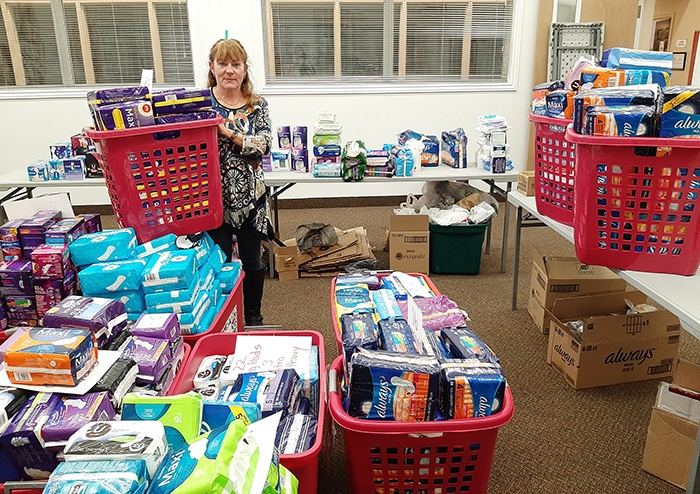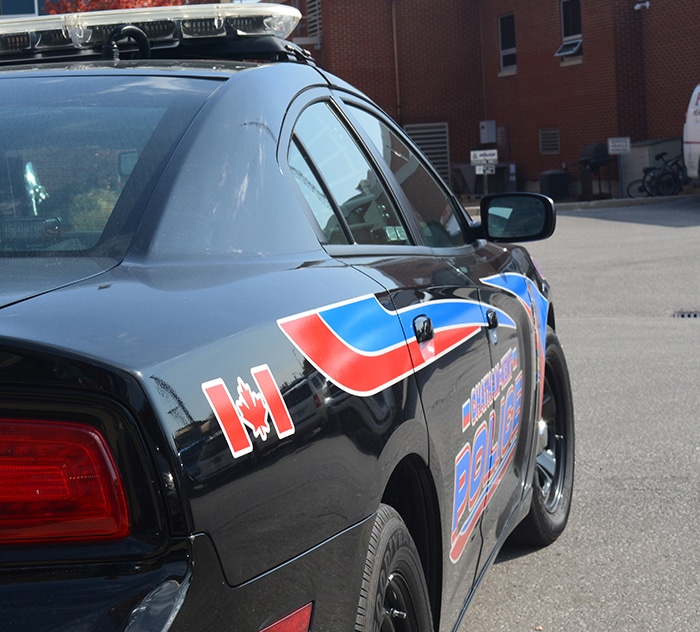
By Jenna Cocullo, Local Journalism Initiative
An annual Chatham-Kent event that collects feminine hygiene products for women in need has seen its biggest year yet.
On Oct. 20, the fourth annual Tampon Tuesday drive, hosted by Women United and the Chatham-Kent Labour Council took place.
“Last night we were at 1,834 items and we still have six more totes outside and some at the Bradley Centre. I suggest we’re going to be over slightly 2,000 boxes,” said Margery Muharrem, staff support for Women United, an affiliate group of United Way of Chatham-Kent.
COVID-19 changed the way Tampon Tuesday took place this year. In the past, businesses were asked to collect baskets at their work but with the lockdown in place, and many people still at home, Women United decided to ask residents to drive by their offices for the drop off.
“It went way better than we anticipated; we had over 150 vehicles come through and it was actually very few folks who donated just one box. It was multiple boxes with bags,” Murharrem said, adding that they will likely use the same format next year after the large success they have seen.
Last year the tampon drive collected more than 1,500 boxes of feminine hygiene products – pads, tampons, panty liners and menstrual cups. The products are distributed to local food banks, churches and grassroots organizations that work with people living in poverty.
This year, Women United is hoping to co-ordinate with Chatham-Kent’s school boards to supply students with free feminine hygiene products, Muharrem said. Other cities such as London already provide that service to their students.
“A hundred per cent there are girls who don’t attend school if they get their periods. They won’t go either because they don’t have the product, or they’re embarrassed, or afraid they’ll bleed through their clothes. So we want to make sure they are taken care of,” she said.
Feminine hygiene products are one of the most requested hygiene products at food banks but often it is only soaps and shampoos donated.
“It’s proven to be that if the woman of the house has to either put food on the table or purchase hygiene products, she’s going to put food on the table and make due with some other way of dealing with her period. That’s not good. It can cause toxic shock syndrome and other unsanitary conditions, so it’s not healthy,” Muharrem said.
Especially in families with multiple women and girls, costs can add up for low-income families, she added.
Muharrem said tampons and other menstruation products are often left out of donations because of the stigma men may feel purchasing them at the store.
“It’s part of our life, so let’s make it as dignified and helpful as we can make it.”






